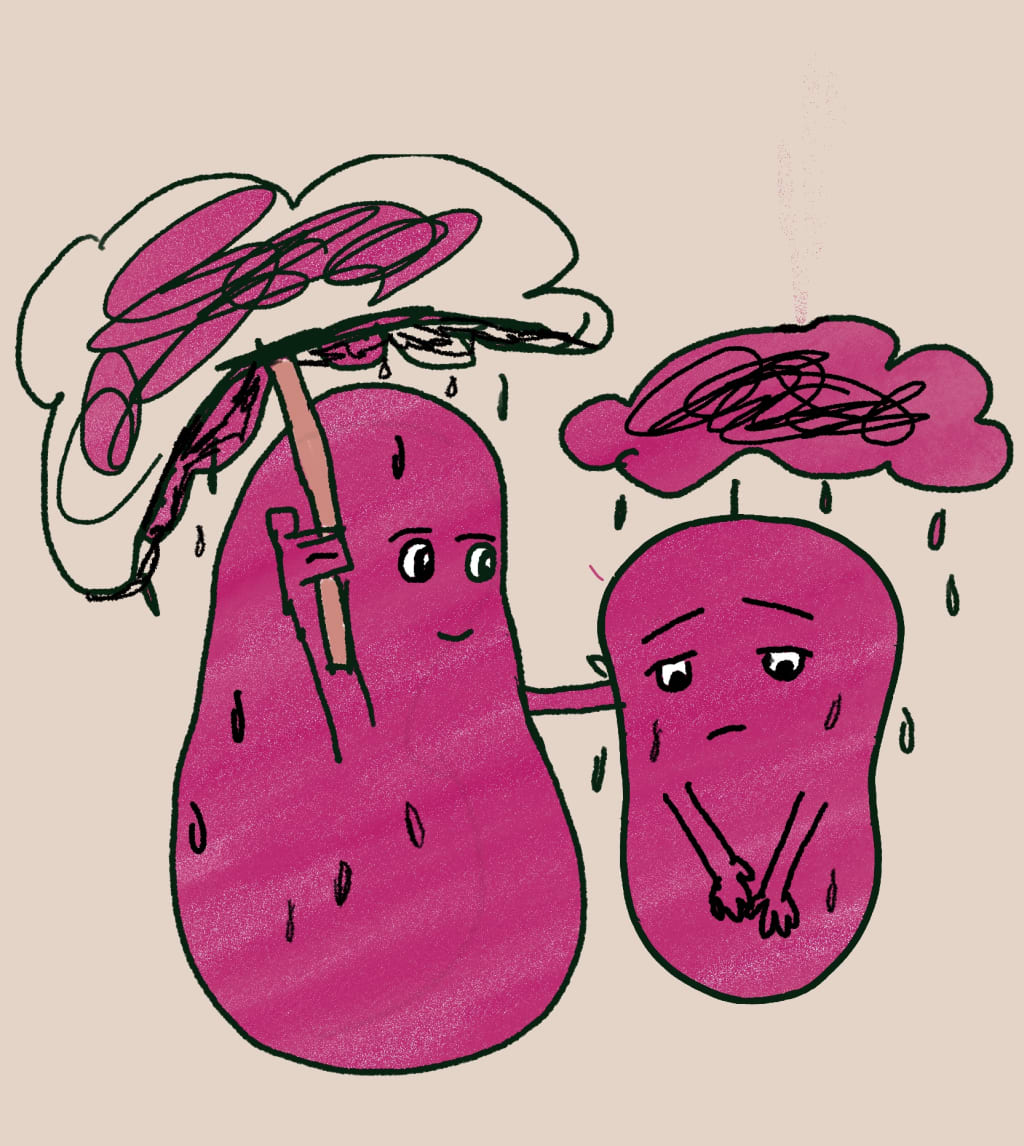Supporting Loved Ones with Anxiety When We Also Live With It
Understanding and navigating the impact of anxiety on relationships and our own self-care

Anxiety is a common and often debilitating emotion that can affect individuals and families in various ways. It can interfere with daily functioning and relationships, leading to feelings of isolation and distress. It can be challenging to support a loved one struggling with the same emotion when we are also struggling with anxiety. However, with the help of a trained marriage and family therapist, it is possible to learn skills and strategies to effectively support our loved ones while also taking care of ourselves.
What is anxiety?
Anxiety is a natural response to stress or perceived danger. Feelings of worry, nervousness, and fear characterize it. While some anxiety levels are normal and can even be helpful in certain situations, excessive anxiety can interfere with daily functioning and lead to physical and emotional health problems.
Various factors can trigger anxiety, including life events, genetics, and past experiences. It can manifest in various ways, including generalized anxiety disorder, social anxiety disorder, and specific phobias.
The impact of anxiety on relationships
Anxiety can significantly impact relationships, causing communication breakdowns, misunderstandings, and a lack of intimacy and connection. It can also lead to harmful coping mechanisms, such as avoidance, withdrawal, and aggression.
When one or both partners in a relationship struggle with anxiety, navigating these issues can be incredibly challenging. However, with the help of a trained therapist, it is possible to learn skills and strategies to support each other and improve communication and connection effectively.
Supporting loved ones with anxiety
As a partner, friend, or family member, it is natural to want to support a loved one who is struggling with anxiety. However, it is important to remember that each person's experience with anxiety is unique, and what works for one person may not work for another.
Here are some tips for supporting loved ones with anxiety:
- Educate yourself about how anxiety can impact individuals and relationships. This can help you better understand your loved one's experiences and how to support them best.
- Encourage your loved one to seek professional help. A trained therapist can provide valuable tools and strategies for managing anxiety.
- Be an active listener. When your loved one is feeling anxious, it can be helpful to listen and provide a supportive and non-judgmental space for them to express their feelings.
- Offer practical support. This may include helping your loved one create a daily routine or providing transportation to therapy appointments.
- Encourage self-care. Encourage your loved one to take care of themselves by engaging in activities that bring them joy and relaxation, such as exercise, hobbies, or time in nature.
- Encourage your partner to practice deep breathing and relaxation techniques: When we feel anxious, our bodies go into a "fight or flight" mode, leading to physical symptoms such as rapid breathing and increased heart rate. Deep breathing and relaxation techniques, such as progressive muscle relaxation or mindfulness meditation, can help to calm the body and mind.
Supporting ourselves when we have anxiety
When we are also struggling with anxiety, it can be challenging to balance our own needs with those of our loved ones. It is important to remember that taking care of ourselves is not selfish, and it is necessary to support our loved ones effectively but not at the cost of our mental health.
Here are some tips for supporting ourselves when we also have anxiety:
- Seek professional help. A trained therapist can provide valuable tools and strategies for managing anxiety and improving relationships.
- Practice self-care. Engage in activities that bring you joy and relaxation, such as exercise, hobbies, or time in nature.
- Make sure to make time alone for your own needs; this will be your time to recharge and get back to your center.
- Set boundaries. Communicating your needs and boundaries to your loved one is essential, especially when you cannot be supportive or feel like your tank is empty.
- Have an external support system. Social support can be an essential factor in managing anxiety. Surround yourself with supportive friends and family members and consider joining a support group or seek group therapy if you are comfortable.
Remember that it is normal to feel anxious at times, and living with it will have its ups and downs. It is essential to seek help if anxiety interferes with your daily life. A trained therapist can provide valuable tools and strategies for managing anxiety and improving overall well-being.
About the Creator
Geomara Flores
I’m Geo, a writer, illustrator, and Marriage and Family Therapy graduate student. I believe in the importance of information and knowledge, and I write about psychology, mental health, spirituality, and social justice.
Reader insights
Nice work
Very well written. Keep up the good work!
Top insight
Heartfelt and relatable
The story invoked strong personal emotions






Comments (1)
Very helpful advice, my mom deals with anxiety and you helped me find out the reason she is often distant from me, I will surely use this information to help her as much as I can.